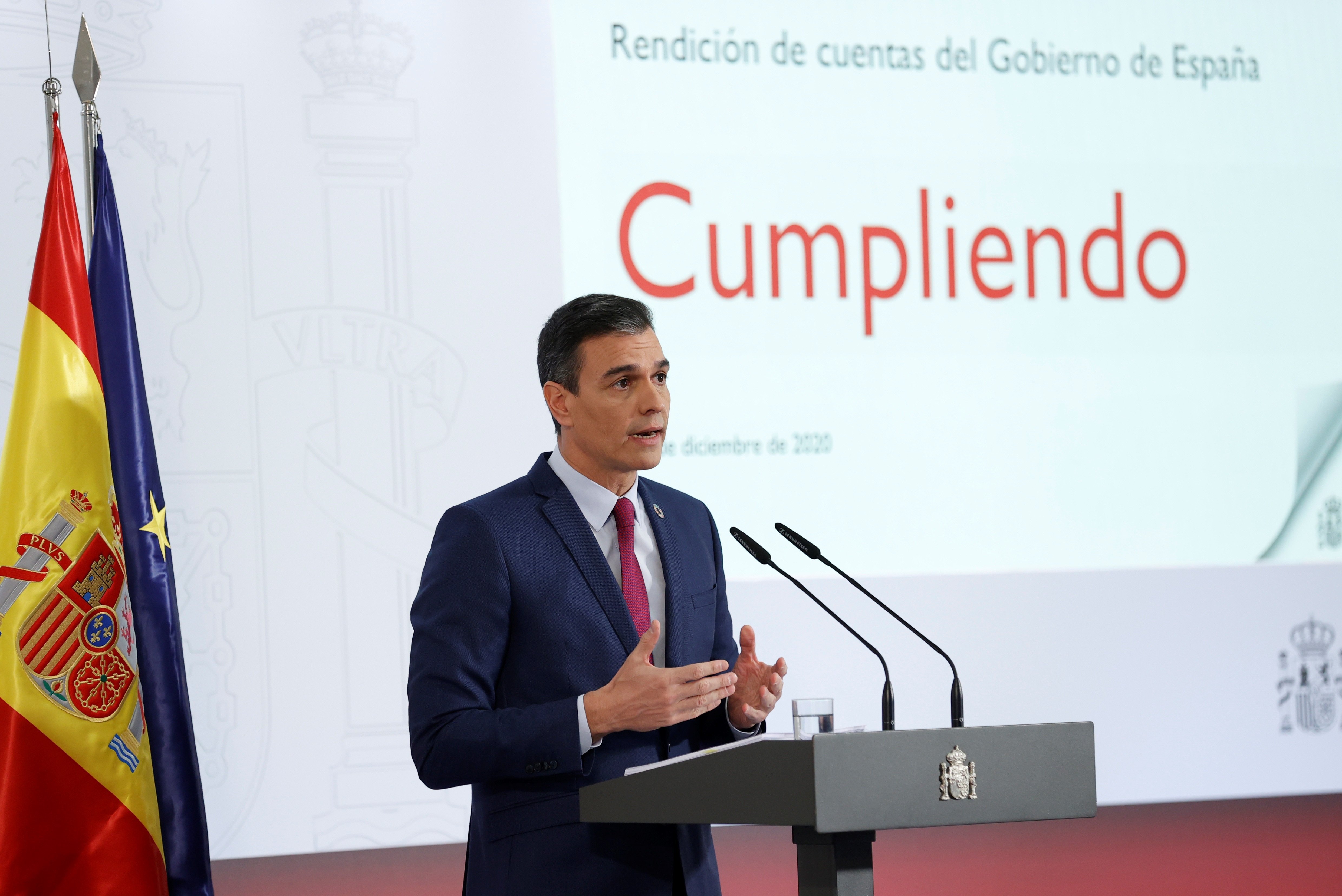The situation of the Catalan political prisoners is of key importance. Even Spanish transport minister José Luis Ábalos has spoken of a "moral obligation to relieve tensions in Catalonia". That is why there are two options on the table, two options that nevertheless both remain frozen. On the one hand, the reform of the sedition law, which was to be approved by the Spanish cabinet before the end of the year, but which has not happened. Prime minister Pedro Sánchez has now set a new vague deadline: during 2021. And he said something similar in reference to possible pardons for the nine imprisoned pro-independence leaders: until the matter reaches the cabinet table, it will not rule on the issue, no matter the references that might be made to “moral obligations”. The Spanish PM limited himself to some phrases about the "reencounter" between Catalonia and Spain.
This Tuesday, in his last scheduled press appearance of the year, the leader of the executive gave a summing up of government achievements, which obviously did not cite the reform of the Spanish Penal Code as having been completed. Asked about the question, Sánchez said that now "the goal of the Spanish government is to be able to present it next year, in 2021." He said that the year about to begin "must be the year we update our Penal Code", to bring it into line with the "European democracies which we want to resemble even more".
He has also dodged the issue of the pardons, limiting himself to noting that there is a legal process through which they have to pass. The respective reports must first be prepared and "then they reach the cabinet table". "That will be when I say what the government's position is," he said, avoiding the issue. However, he wanted to make it clear that "this is a government that, from the beginning, is clearly committed to reconciliation and reencounter." That is why he continues to refer to "dialogue" as a way to overcome certain "episodes" of the past and "look to the future." He affirmed that this is what the Catalans will opt for on their election day, 14th February.
The Spanish PM assured that "when we talk about Catalonia, no one is free of guilt", because "we have all made mistakes". For this reason, it is necessary to look for new ways to reconcile Catalonia and Spain.
Dialogue with Catalonia: "in process"
The dialogue table between the Spanish state and Catalonia's Generalitat has met only once: on the day it was set up. The promise to approve the Penal Code reform before the end of 2020 has not been met. Clearly the pandemic has upset everything, but these were promises that were ratified after the first wave of coronavirus. However, Pedro Sánchez puffed out his chest proudly today for the promises he has fulfilled. The PM presented a report that lists 1,238 commitments his one-year-old government made, of which 23.4% have a green tick beside them.
The document which Sánchez presented today analyzes the coalition government's level of compliance with agreements made with other political parties. In the case of Catalonia's ERC, whose votes were critical to the creation of the government, only one promise is mentioned: the dialogue table. Thus, according to the executive's balance sheet, the Spanish government has 100% of its commitments with the Republicans "in process", which means that they have been initiated but not fulfilled. In the case of the Basque Nationalist Party (PNV), it lists 14 investiture commitments, of which it claims 7% are fulfilled and 79% are "in process". The parties with whom the Socialists-Podemos government has most met its obligations, according to the document, are Valencia's Compromís (32%) and the Canary Islands group NC (29%).

